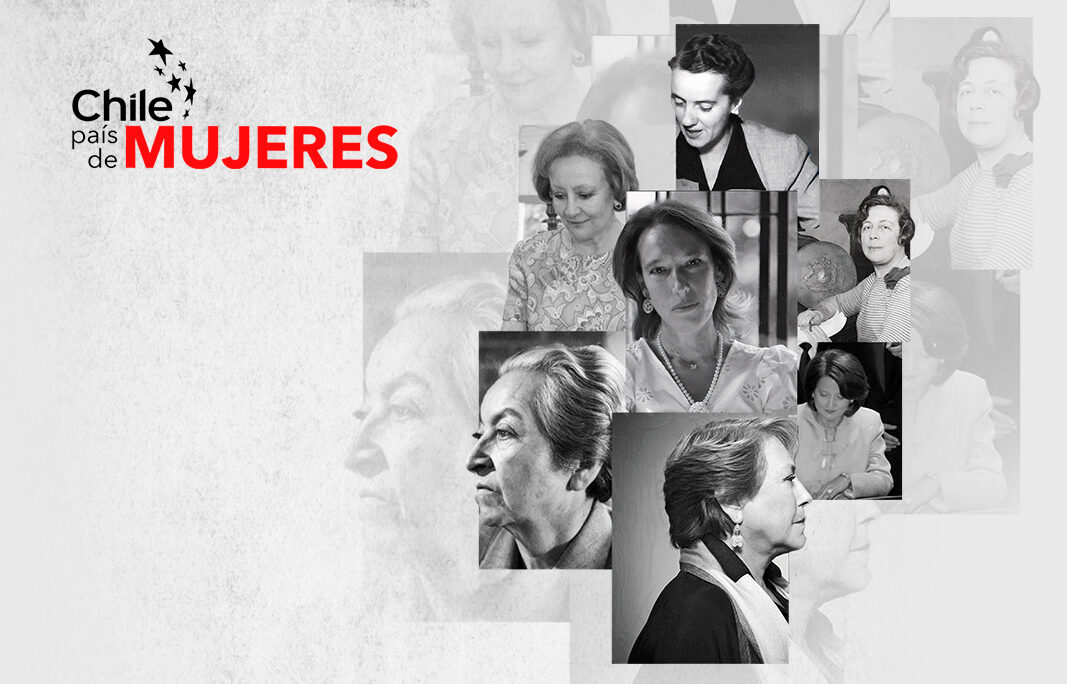
According to UNESCO, this commemoration aims to highlight "the essential role that women have played in the promotion of human rights, peace and sustainable development within the multilateral system".
In that vein, this ephemeris "advocates for greater representation of women in key decision-making positions that shape and implement multilateral agendas to ensure that multilateralism works for women and girls through gender-transformative actions and agreements."
In this context, Chile currently has a feminist foreign policy (PEF), which aims to integrate the principle of equality and non-discrimination in diplomacy and the country's international relations. In 2024, there were 138 Chilean women diplomats abroad, an increase of 527.27% since 1990, when there were only 22.
In addition to this, the country has a history of emblematic women who have played important roles in the multilateral system, both in positions in Chile and abroad. Find out who they are here.
Inés Ortuzar
Chilean women were present in the Chilean Foreign Service for several decades before the professionalization of the diplomatic career. The first Chilean woman consul was Inés Ortúzar. In 1928 she was appointed Consul of Chile in Hull (England) and, in 1930, in Glasgow, where she remained for eight years.
Gabriela Mistral
Gabriela Mistral was not only a renowned writer and the first Spanish-speaking woman to receive the Nobel Prize for Literature. She also had an outstanding career as a diplomat and was part of the Chilean delegation to the "Legal and Social Commission of Women" of the United Nations Assembly.
On July 18, 1933 Gabriela Mistral was appointed Consul of Chile in Madrid (Spain). In 1935, by Decree Law of September 24, she was appointed Private Consul for life. Since then she was appointed Chilean Consul in: Lisbon, Oporto, Nice, Niteroi, Petrópolis, Los Angeles, Santa Barbara, Veracruz and Jalapa, Naples, Rapallo, Florida and in New York.
Carmen Vial
Carmen Vial Freire was the first woman to serve as Ambassador of Chile in the country's history. She served as Minister Plenipotentiary to the Netherlands between 1947 and 1949. Previously, between 1942 and 1945, she worked at the consulates in Los Angeles and Boston, in addition to serving as Cultural Attaché at the Chilean Embassy in the United States.
Maria Teresa Infante
María Teresa Infante Caffi is a Chilean lawyer, diplomat and judge with an outstanding career in Chile and internationally.
She was national director of Frontiers and Boundaries of the State (1997-2009); co-agent of Chile before the International Court of Justice in the maritime delimitation cases with Peru; was part of the group of experts that advised Chile for Bolivia's claim; and ambassador to the Netherlands (2014-2020). Since 2020, she has been a judge of the International Tribunal for the Law of the Sea.
Soledad Alvear
She was the first woman to serve as Chile's Minister of Foreign Affairs between 2000 and 2004. Prior to that, in 1990, she worked as a consultant for the Food and Agriculture Organization of the United Nations (FAO).
Prior to her appointment as Chancellor, she served as Minister Director of the National Secretariat for Women (1991-1994) and as Minister of Justice (1994-1999).
Carolina Valdivia
First woman to hold the position of Undersecretary of Foreign Affairs of Chile between 2018 and 2022, after being appointed while serving as Director General of Legal Affairs of the Ministry of Foreign Affairs.
At the international level, she was Executive Coordinator of the Agency before the International Court of Justice in The Hague in the case of the Obligation to Negotiate Access to the Pacific Ocean, between Bolivia and Chile.
Finally, he was a member of the Chilean Society of International Law and the American Society of International Law.
Michelle Bachelet
First female president in the history of Chile. In 2010, after completing her first presidential term, she was appointed the first Under-Secretary-General and Executive Director of UN Women, a United Nations agency created to promote gender equality and women's empowerment.
In 2018, Bachelet took office as United Nations High Commissioner for Human Rights, where she served until 2022. In this role, she monitored and denounced human rights violations in various parts of the world, promoting justice, equality and the protection of fundamental rights.






